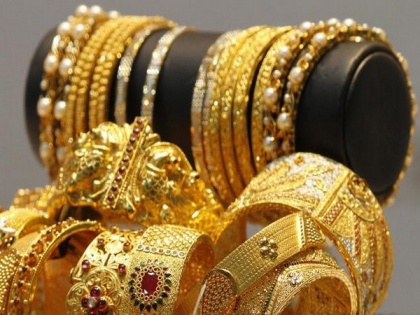Making gold metal loan a robust financial product is key to successful GMS: Mehrasons
By ANI | Published: March 30, 2020 01:06 PM2020-03-30T13:06:10+5:302020-03-30T13:17:07+5:30
Banks must sanction a gold metal loan (GML) in the weight of gold and permit its rollover on paper without importing physical gold, a leading industry expert has said.

Making gold metal loan a robust financial product is key to successful GMS: Mehrasons
New Delhi [India], Mar 30 : Banks must sanction a gold metal loan (GML) in the weight of gold and permit its rollover on paper without importing physical gold, a leading industry expert has said.
At the same time, authorities should take steps to provide relief for borrowers of GML by prohibiting banks from making any margin calls, said Managing Director of Mehrasons Jewellers Ajay Mehra.
"This will be in effect equivalent to sanctioning a GML in the weight of gold itself as recommended by the NITI Aayog and the Department of Financial Services at the Ministry of Finance," he said.
In November 2015, Prime Minister Narendra Modi launched the Gold Monetisation Scheme (GMS) to reduce import of the yellow metal by increasing its recycling within the country. But it has got a muted response.
Mehra said a GML is a financial product used by banks to profitably lend the gold accumulated under the GMS. It is also used by jewellers to meet their inventory requirements at a low interest rate of 3 to 4 per cent per annum while the traditional inventory finance in rupee terms is available at 12 to 14 per cent per annum.
Yet, despite the low interest rate, there are no takers for GML.
Mehra said a large public sector bank had received 1,300 kg of gold deposits under the GMS of which it was only able to lend 300 kg. This means that the bank lost money on GMS transaction, as it was paying interest to the depositor and receiving less through interest from its borrowers.
Rather than understand why there were no borrowers despite the incredibly low interest rate of 3 to 4 per cent per annum, the bank simply refused to accept further gold deposits under GMS, as this has been a loss-making endeavour.
Obviously, said Mehra, this has impacted the GMS as few banks are willing to accept gold deposits. More importantly, this also highlights where the solution lies: the GML.
"Making the GML a robust financial product is the key to a successful GMS. For this, it is imperative that the concerns of all the stakeholders -- banks, borrowers and the Reserve Bank of India, are evaluated and addressed."
Mehra said the coronavirus (COVID-19) pandemic is creating a frenzy in world markets and gold prices have shot up exorbitantly. Fluctuations are rife and each day brings a new shock in terms of market rates.
"This is rendering borrowers of GML hopeless in the face of margin calls."
Governments all over the world are taking action to protect and bolster their respective economies, and attempting to protect local businesses from failures.
"Similarly, our policymakers need to recognise the grave difficulty faced by GML borrowers and take appropriate steps by issuing an ordinance prohibiting banks from making margin calls from GML borrowers," said Mehra."Quick reprieve is the need of the hour and timely redressal will prevent needless creation of non-performing assets (NPAs) of otherwise financially healthy borrowers," he said.
( With inputs from ANI )
Open in app